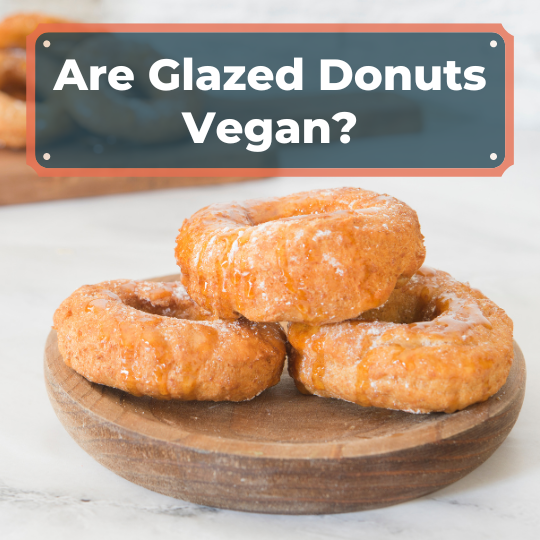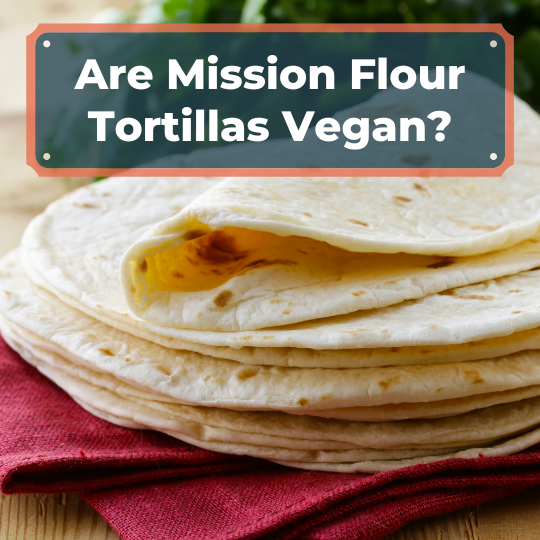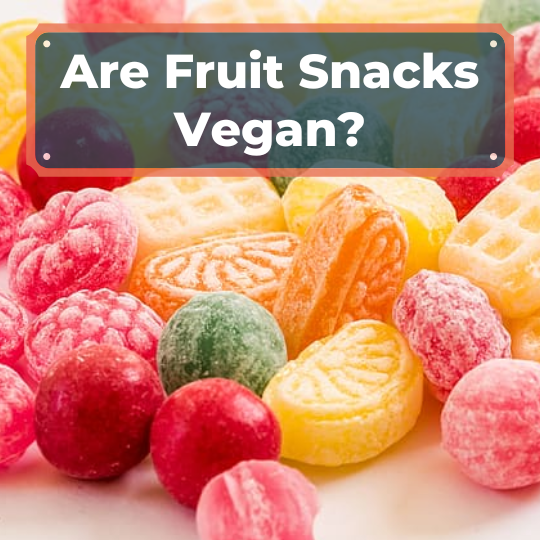Honey Nut Cheerios is one of General Mills’ best-selling brands of cereal. They contain all of the wholesome goodness of plain Cheerios, with a bit of honey-kissed sweetness. The problem is that breakfast cereal often has a reputation for being non-vegan due to animal-derived additives.
So, are Honey Nut Cheerios vegan?
Sadly, Honey Nut Cheerios are NOT vegan. Although they’re certainly healthier than many other brands of sugar-laden cereal, Honey Nut Cheerios contain several non-vegan ingredients.
Honey, refined sugar and vitamin D3 are all ethically-challenging additives in this popular breakfast cereal.
Below, I’ll explain why these ingredients aren’t vegan and give you a closer look at what Honey Nut Cheerios are made of. It’s time to take a closer look at this breakfast cereal.
Why Isn’t Honey Vegan? The Problem With Honey Nut Cheerios
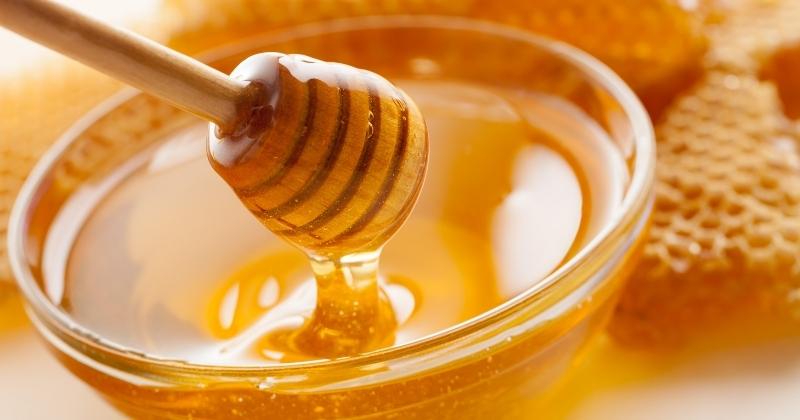
Now, you may be thinking to yourself, “Wait – what’s wrong with honey? Isn’t it an all-natural product?”
Although honey is a natural product that’s far healthier than consuming processed sugars, it’s, unfortunately, a non-vegan sweetener.
To better understand why honey isn’t vegan, let’s take a few minutes to look at how most mainstream honey is produced:
- Captive honey bees are kept in artificial bee hives
- The hives are placed close to a source of natural pollen (typically clovers)
- Honey bees gather nectar from the flowers and bring it back to their hive
- There, they use natural enzymes from their saliva to turn the nectar into honey, which is used to feed their larvae and sustain the colony during the winter months
- Once the hive is full of honey, beekeepers remove the honey
- Sometimes, the honey is replaced with an artificial sugar syrup to ensure that the colony doesn’t die of starvation
The reality is that honey isn’t just a “free” product that bees willingly produce for humans. Unfortunately, no animals are quite that charitable. Bees produce honey for one reason and one reason only – to keep their hive alive.
Adult bees can survive on the nectar that they gather during pollination. As they gather nectar, they consume a portion of it to keep them going and bring the rest back to the hive.
The problem is that the young larvae can’t break down the nectar. To consume it, the adult bees must first break down the nectar with their natural stomach enzymes. The regurgitated nectar is honey.
By taking away a colony’s honey supply, beekeepers limit the food supply for the larvae, limiting the growth of the colony and ensuring that many of the young larvae die of starvation.
Additionally, honey also serves as a food source for adult bees. During the winter months when there are no flowering plants to gather nectar from, they survive almost entirely on the honey. Here’s a close-up video of bees eating honey:
How would you like it if somebody stole your entire pantry full of baby formula and food that you worked for all summer?
Even though beekeepers often replace the honey they take with a liquid sugar substitute, this isn’t as healthy or nutritious for the colony. This eventually leads to a weaker, nutrient-deprived colony.
Here’s where it gets worse…
Once the colony becomes weaker and stops producing as much honey, many commercial beekeeping operations simply kill off the colony so it can be replaced with a stronger colony.
In a nutshell:
- Bees produce honey for food
- Beekeepers steal honey to sell, replacing it with low-quality sugar
- The bee colony becomes weakened by low-quality food
- The weaker colony produces less honey the next season
- The weakened colony is then killed off and replaced by the same beekeepers who weakened the colony, in the first place
Are you beginning to see how unfair commercial beekeeping is?
Don’t get me wrong, there are some ethical beekeepers who only take excess honey, which the bees don’t necessarily “need,” leaving behind enough for the colony to survive on. However, I’d say that ethical honey accounts for less than 5% of all of the honey on store shelves.
Plus, I highly doubt that a large company like General Mills is using high-cost ethical honey for their cereal!
Are Honey Nut Cheerios Dairy-Free?
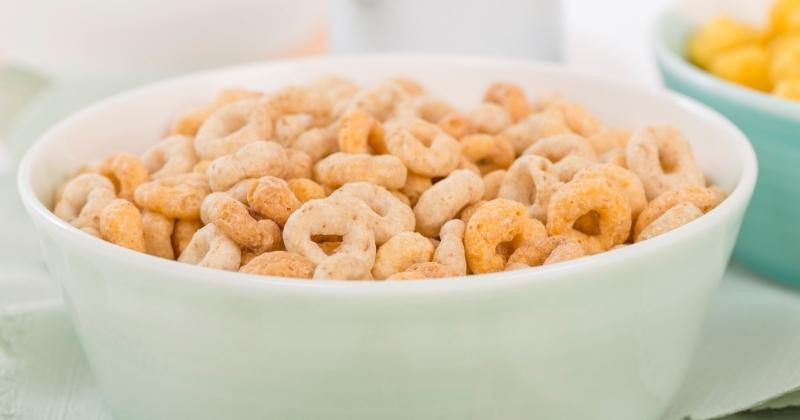
Unfortunately, dairy is a very common find in American breakfast foods. Everything from Toaster Strudels to waffles contains one or more dairy products, such as whey, milk solids, or pure milk.
Honey Nut Cheerios are dairy-free, though.
While the cereal may not be acceptable for vegans, Honey Nut Cheerios are still a good option for lactose-intolerant individuals! Just be sure to eat your cereal with a non-dairy milk substitute like almond milk or oat milk.
Which Cheerios Are Vegan?
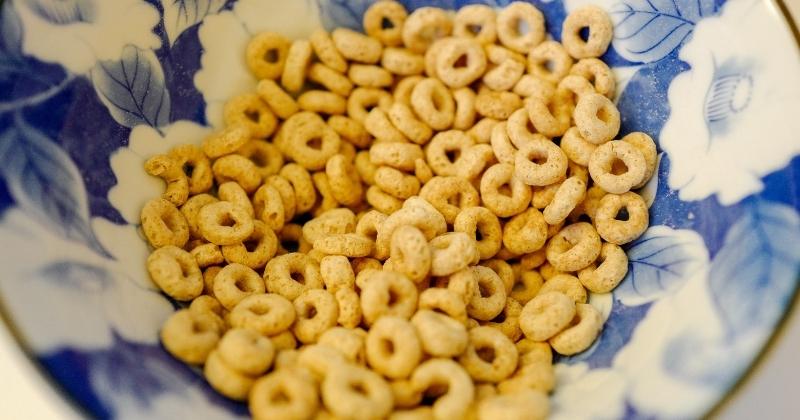
You may be wondering if some of the other non-honey flavors of Cheerios are vegan…
At this time, all flavors of Cheerios are non-vegan. This is because all Cheerios flavors contain both refined sugar and added vitamin D3, which comes from animal hairs.
What Are Honey Nut Cheerios Made Of? Ingredients Analyzed
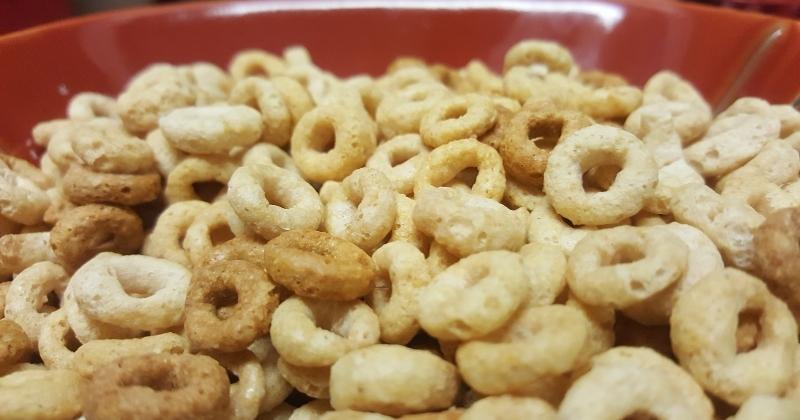
I don’t like to leave my readers hanging. I always make it my goal to provide a full breakdown of all of the ingredients in a food product, to show you exactly why it’s a vegan or non-vegan product.
Plus, I think that everybody should learn the basic ingredients used in everyday food. The more you know about what you’re putting in your body, the better equipped you’ll be to tell whether or not any food is vegan, just be looking at the ingredients list!
Here are the ingredients in Honey Nut Cheerios, obtained from the manufacturer’s site:

Now, let’s take a few minutes to go through the list and simplify everything.
1) Whole Grain Oats
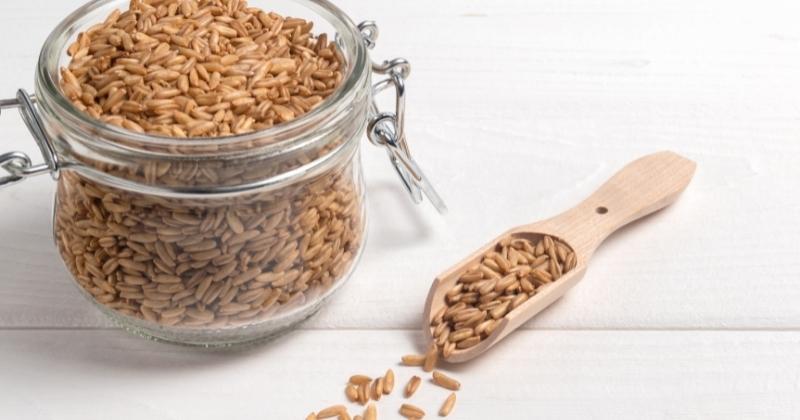
Just like regular Cheerios, Honey Nut Cheerios are made using real whole grain oats. Oats are an all-natural source of carbohydrates and a great source of dietary fiber.
These whole grain oats are far more nutrient-dense than most of the processed flour used to make most breakfast cereals.
Whole grain oats are also the main ingredient used to make granola, which is one of my favorite vegan-friendly breakfast foods.
2) Sugar
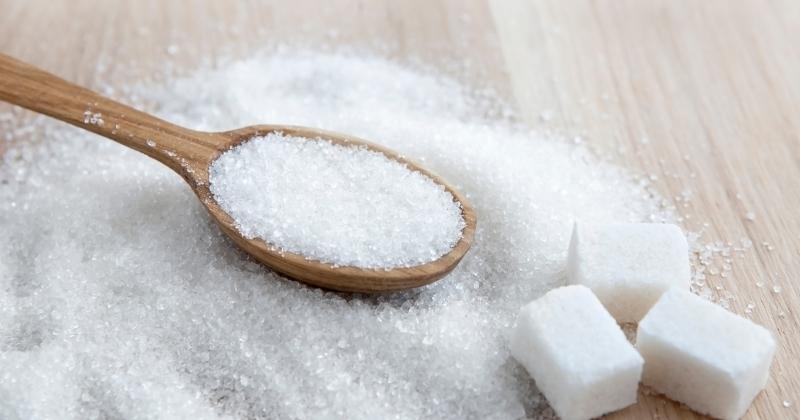
In addition to honey, all flavors of Cheerios are sweetened with sugar (refined white sugar, to be exact). While sugar is technically a natural, plant-based sweetener, many vegans have chosen to boycott refined sugars due to the manner through which they’re refined.
To turn the all-natural cane sugar into the pretty white sugar crystals that we all know as “sugar,” the cane sugar must pass through a filtration system that contains animal bone char.
Animal bone char has high levels of carbon, which helps remove the impurities and malt coating that surrounds the pure sugar crystal.
The problem, as you’ve probably already surmised, is that bone char isn’t vegan. Bone char is made from slaughterhouse bones that have been fire-roasted until they’re blackened char. For this reason, most vegans tend to gravitate towards cereals sweetened with unrefined cane sugar.
3) Oat Bran
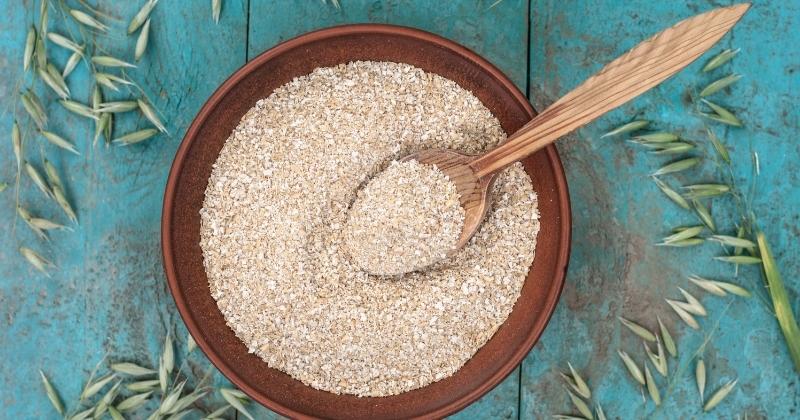
Oat Bran is the outer layer of the oat “groat.” It serves as the protective casing that lies between the oat and the inedible outer husk of the oat. As oats are processed, the bran is separated and turned into a coarse, powdery substance.
Oat bran is incredibly healthy and is packed full of dietary fiber, minerals, and natural antioxidants. It’s also 100% vegan. Sometimes I even put oat bran in my smoothies!
4) Corn Starch
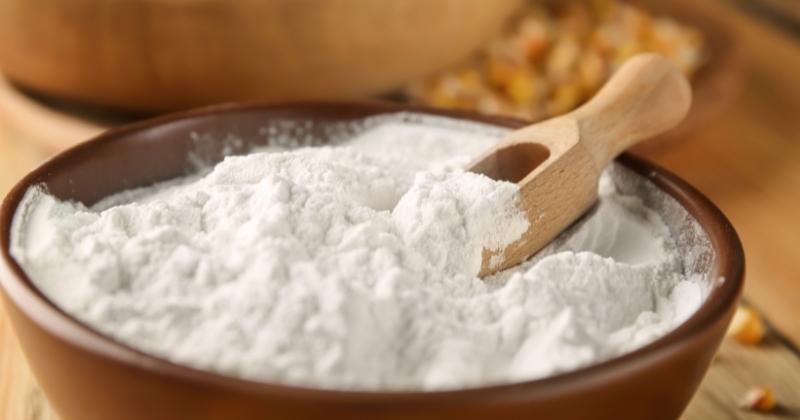
Corn starch is a simple sugary starch that’s extracted from processed corn flour. It’s used as a thickening agent in Honey Nut Cheerios. It also contributes to a crunchier texture in the final product!
5) Honey

As we discussed above, honey is not vegan. Unfortunately, it’s the main reason why people buy “Honey” Nut Cheerios, to begin with.
6) Brown Sugar Syrup
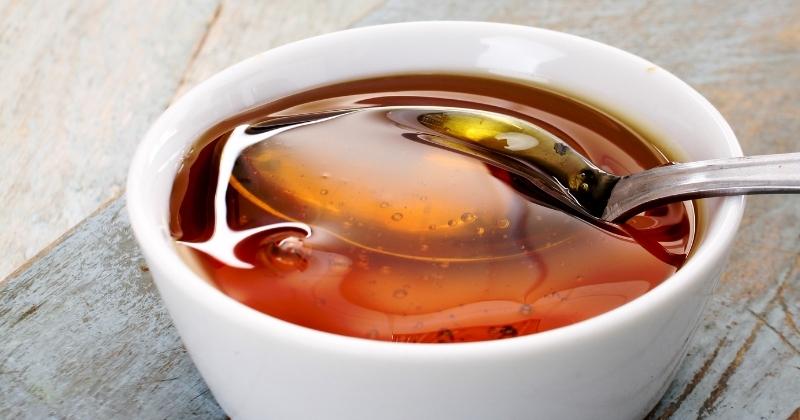
Brown sugar syrup is a sweet syrup that tastes similar to molasses. It’s made by combining brown sugar and water. Brown sugar syrup is not a vegan-friendly product, because it’s made using white sugar, which is also non-vegan.
Brown sugar is just plain white sugar that has small amounts of molasses added to improve the flavor.
7) Salt

All baked goods, including cereal, contain some small amount of salt. Salt is a key component of all dough mixtures, as it helps to strengthen the dough, creating a more consistent, stronger product.
8) Tripotassium Phosphate
Tripotassium phosphate is a powerful, acidic, inorganic salt that’s typically found in cleaning agents. In Cheerios, it’s used as a strong preservative. It increases the acidity of the food, which prevents bacteria from reproducing on the food.
9) Vegetable Oil

Honey Nut Cheerios are made with either rice bran oil or canola oil. Both of these all-natural vegetable oils are sustainably sourced and vegan-friendly. They’re added to the cereal dough to improve its texture and consistency.
10) Natural Almond Flavor
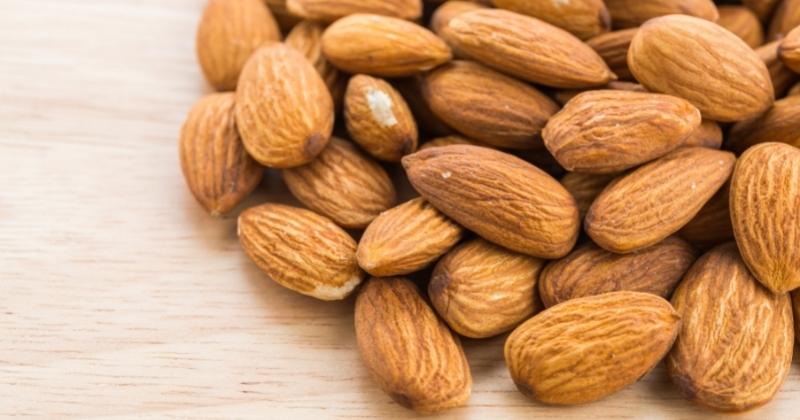
If you’ve ever eaten Honey Nut Cheerios, then you may have noticed that the cereal has a light hint of amaretto flavor. This warm, nutty flavor provides an added layer of complexity and gives the cereal a more unique taste.
11) Vitamin E (As a Preservative)
Vitamin E oil is used to coat the outside of the Cheerios. It acts as a color preservative and keeps the Cheerios from changing color once the package is opened.
12) Added Vitamins & Minerals
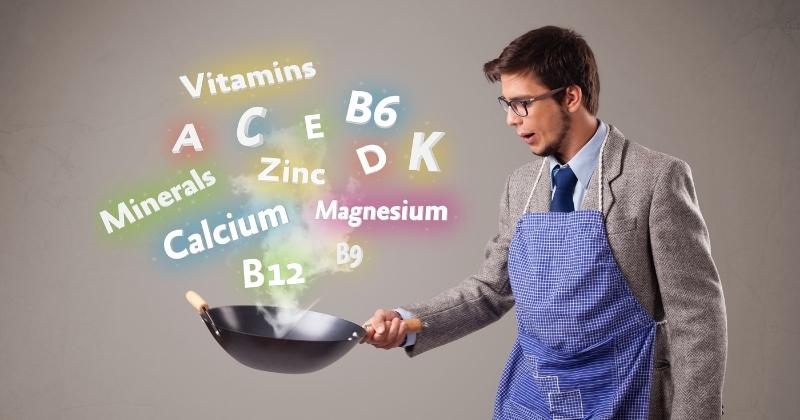
All General Mills cereals contain a blend of added vitamins and minerals. While most of these added vitamins and minerals are healthy and nutritious, vitamin D3 is not vegan.
Unlike vitamin D2 (which is vegan-friendly), D3 is extracted from the oils found within animal hair (usually sheep’s wool).
Conclusion – Are Honey Nut Cheerios Vegan-Friendly?
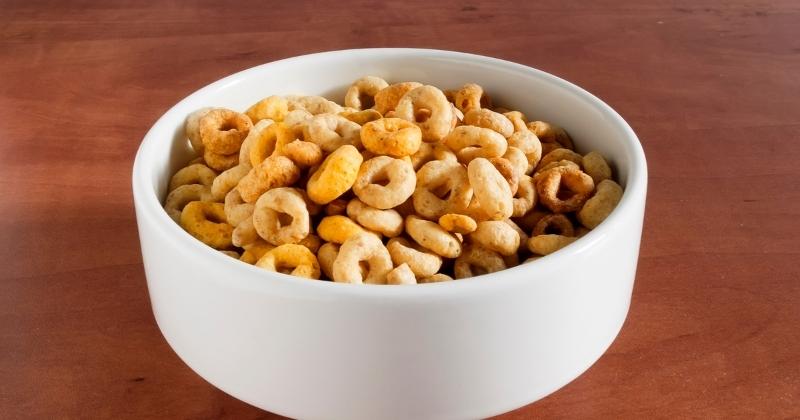
Honey Nut Cheerios are not vegan, for more reasons than one. The cereal contains animal-derived vitamin D3, bone char-refined sugar, and honey obtained from exploited bee colonies.
However, there are plenty of other great cereals made just for plant-based eaters. Keep on reading to find out my favorite vegan cereal brands next!

